Dental Business Guide Podcast Episode | 2nd February 2021
George Bellamy and Arun Mehra
Money Matters: Organizing Finances for Dental Practices
Running a successful dental practice is more than just providing great dental care. It also involves managing money effectively. As a dentist, you need to keep track of your finances to make sure your practice makes a profit. Handling your money isn’t easy, especially when you have to balance taking care of patients and managing the practice’s finances.
In this article, we will talk about some tips and methods to help you organize and handle your finances better. We’ll cover everything from creating a budget and tracking expenses to looking at financial reports and managing your income. We’ll go through all the important steps to help you understand the financial side of your practice and run a successful dental business.

The importance of organizing finances for dental practices
If you own a dental practice, you’re probably busy with lots of daily tasks like seeing patients, managing staff, and making sure everything runs smoothly. Sometimes, you might forget how important it is to plan your practice’s money.You’re not just the principal dentist, you’re a business owner. Organizing your finances well is highly important for your practice to do well and grow over time.
Being organized with your money helps you understand how your practice is doing financially. You can figure out where you’re making money and make smart decisions that help your practice make more money. It’s like having a strong foundation to manage how much money is coming in, how much is going out, and how to make more.
Also, when your money is organized, it’s easier to follow the rules about taxes and other legal requirements. If you keep good records and clear financial reports, you won’t get in trouble or have problems with mistakes.
Having an organized money system also helps you set goals for your practice, see how well it’s doing, and find ways to make it better. You can make important decisions, like buying new equipment or offering new services, based on what your financial info tells you.
By spending time and effort to organize your money, you can take care of your practice’s financial health and set it up for success in the long run. So, let’s dive in and explore the happy numbers that are waiting for you in the world of organized finances for dental practices.
Action Point
Organizing finances is essential for dental practice owners. It helps you understand your practice’s financial health, make informed decisions, stay compliant with tax and legal requirements, and set goals for growth and improvement. By dedicating time and effort to financial organization, you can ensure the long-term success of your dental practice.
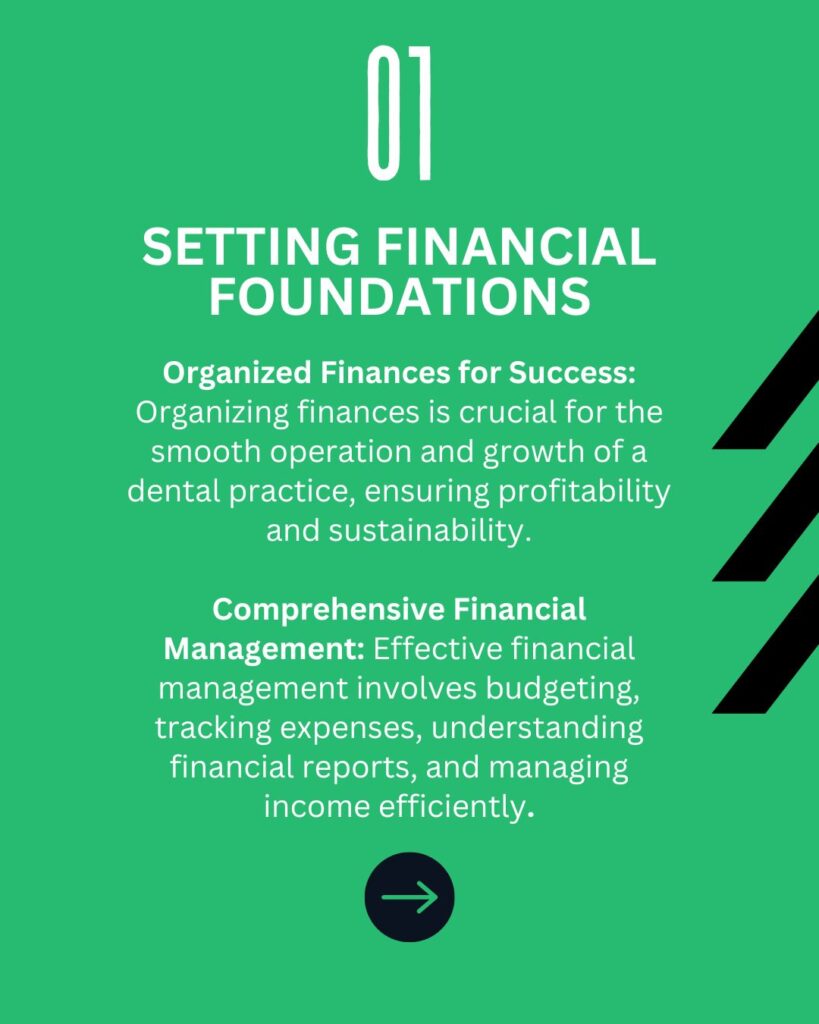
Contact us to find out more
Setting financial goals for a dental practice
Having clear money goals for your dental practice is really important to make it successful and lasting. When you don’t have clear goals, it’s tough to know how well you’re doing and if you’re improving. When you set money goals, it’s good to think about both short-term and long-term things you want to achieve. Start by looking at what’s happening right now. Check out how much money is coming in, how much is going out, and how much profit you’re making. This helps you understand where you are with money. Also, find out if there are any problems or risks you need to fix.
Next, figure out what you want to achieve with your money in the short term. Maybe you want to make more money, spend less, or earn more profit. Setting clear goals that you can measure and achieve over a certain time (like next month or three months from now) helps you stay on track and motivated. Think about things like getting more patients, how often leads are converted, and how much money each patient brings in. For example, you might want to get 10% more new patients in the next three months or improve how you talk to patients about treatments.
Action Point
Setting financial goals for your dental practice is crucial. Assess your current financial situation, establish short-term and long-term goals, and create a comprehensive financial plan to achieve them. Regular monitoring and adjustments will help ensure the growth and profitability of your practice.
Besides short-term goals, it’s also important to set long-term money goals that match your vision for your dental practice. These goals could be about growing your practice, buying new and better equipment, or making a certain amount of profit in a few years. Remember, your money goals should be realistic and possible to achieve. While it’s good to challenge yourself and aim for growth, setting goals that are too hard might be setting yourself up to fail. Keep checking and changing your goals as your practice gets bigger and things change.
Lastly, it’s super important to make a big plan for your money to help you reach your goals. This plan should cover how you’ll make money, spend money, pay off debts, and invest. Checking your money regularly and making changes when needed helps you stay on track to reach your goals. When you set clear money goals for your dental practice, you build a strong foundation for success. This helps you make smart choices that make your practice grow and make more profit.
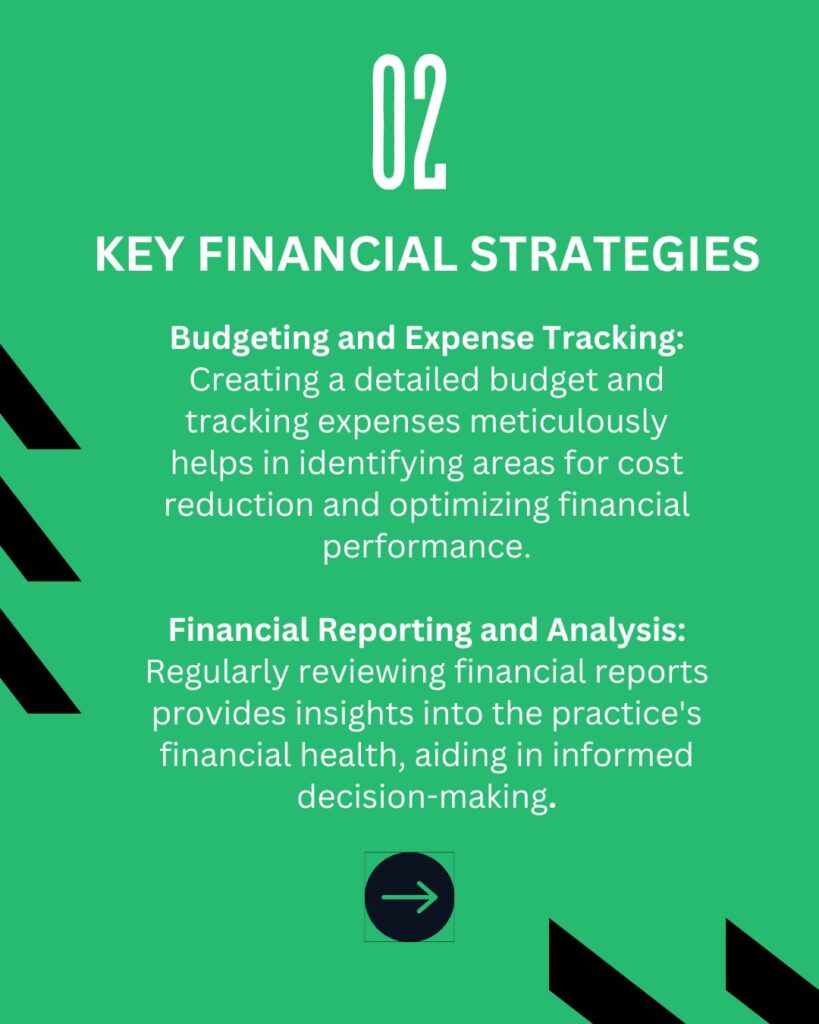
Tracking revenue and expenses effectively
Keeping a close eye on the money that comes in and goes out is really important for any dental practice that wants to be good at managing their finances. By paying attention to these numbers, you can learn important things about how your practice is doing financially and make smart choices to make more money.
To start with, it’s really important to have a good system for recording and sorting out all the money you get and spend. You can do this using specialist software made for dental practices, or you can work with a professional who knows how dental practices work. Keeping up-to-date financial records means you can make accurate reports that show you how well your practice is doing with money.
When you’re tracking the money that comes in, it’s a good idea to separate it into different parts, like payments from insurance, money from patients, and even income from selling dental products. This helps you see which parts bring in the most money and which parts might need some improvement.
Also, keeping a close watch on all the money you spend is important. Divide your expenses into different categories like supplies, equipment, rent, utilities, and salaries for your staff. This helps you find out if you’re spending too much in some areas and where you might save money.
Checking important financial reports regularly, like statements that show your profit and loss, your financial status, and how money is moving in and out, gives you a good overall view of how well your practice is doing financially. These reports help you see patterns, find any mistakes, and make choices based on facts to make more money.
It’s also a good idea to set financial goals for your practice and keep track of how you’re doing. By setting clear goals, like making more money or spending less on certain things, you can see if you’re doing well and change things if needed. In short, keeping a close watch on the money that comes in and goes out is really important for dental practices to manage their finances well. By using good systems, recording everything correctly, and regularly looking at financial reports, you can learn important things, make smart choices, and work towards reaching your money goals.
Action Point
Effective tracking of revenue and expenses is crucial for dental practices. Use specialized software or professional help for accurate financial records. Categorize income and expenses to identify trends. Regularly review reports for insights and set financial goals to stay on track.
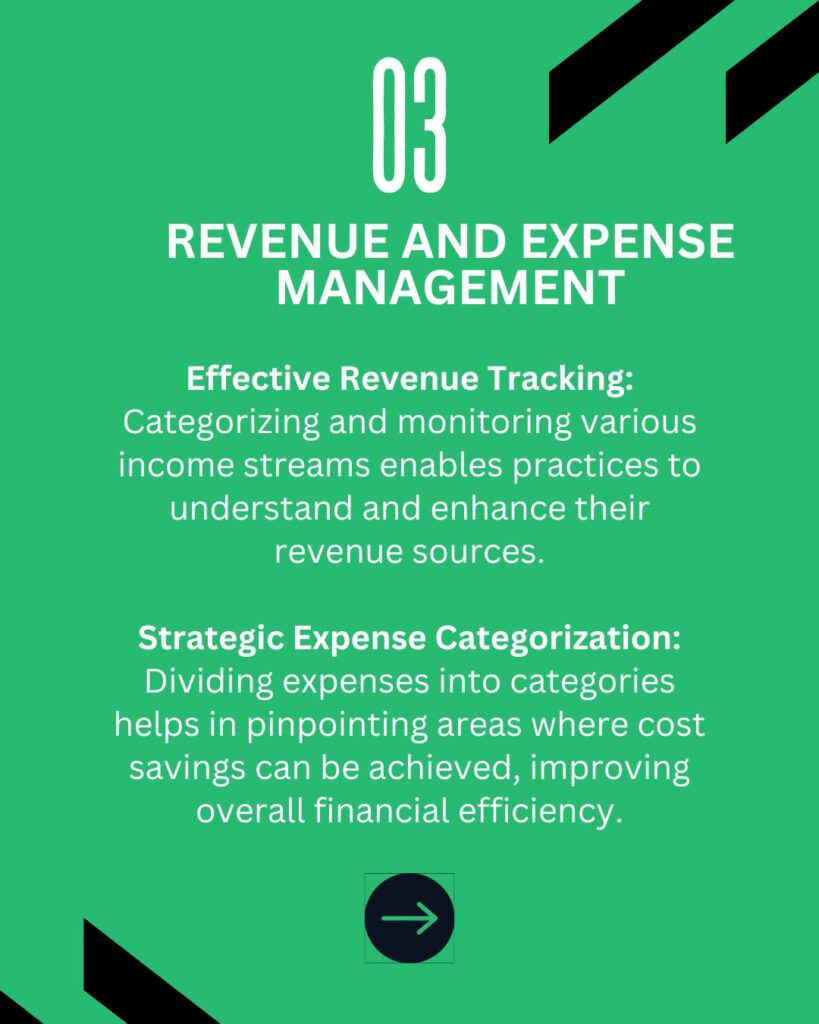
Implementing a bookkeeping system for accurate financial records
Setting up a system to keep track of your practice’s money is really important for dental offices. This system helps you record the money you make and spend, and it helps you see how well your practice is doing financially. First, you need to choose the right software to help you with your money. There are different options, from easy-to-use programs online to more advanced ones. Think about how easy it is to use, if it works with your other systems, and if it can grow with your practice.
Once you’ve picked the program, you need to set it up right. Put in all the financial information, like what patients pay and what insurance gives you. Sort your spending into categories like supplies, staff salaries, rent, and advertising. This helps you understand your money better and find areas where you can do better. Updating your money records often is important to keep things accurate. Set aside time every week or month to put in new information, check that your bank statements match, and look at your money reports. This routine helps you have the newest info and make good choices based on real data.
Also, think about connecting your money system with other software you use to manage your practice. This can make your money tasks easier and reduce the chances of making mistakes. For example, connecting your financial system with your patient management software can automatically record patient payments, saving you time and effort.
Lastly, it’s a great idea to talk to a professional accountant or bookkeeper who knows about dental practices. They can help you set up your money system, give you advice on best money practices, and make sure you follow the right tax rules for dental businesses. By setting up a good financial structure, you not only keep accurate money records but also learn important things about how your dental practice is doing financially. This knowledge helps you make smart choices, improve how money comes in, and work towards long-term success.
Action Point
Implementing an effective bookkeeping system is vital for dental practices. Choose the right software that suits your needs and integrates with other systems. Set up the program with accurate financial data and categorize expenses. Regularly update your records to ensure accuracy. Consider integrating your financial system with other practice management software for efficiency. Consulting a professional accountant or bookkeeper experienced in dental practices can provide valuable guidance. Accurate financial records enable informed decision-making and long-term success.
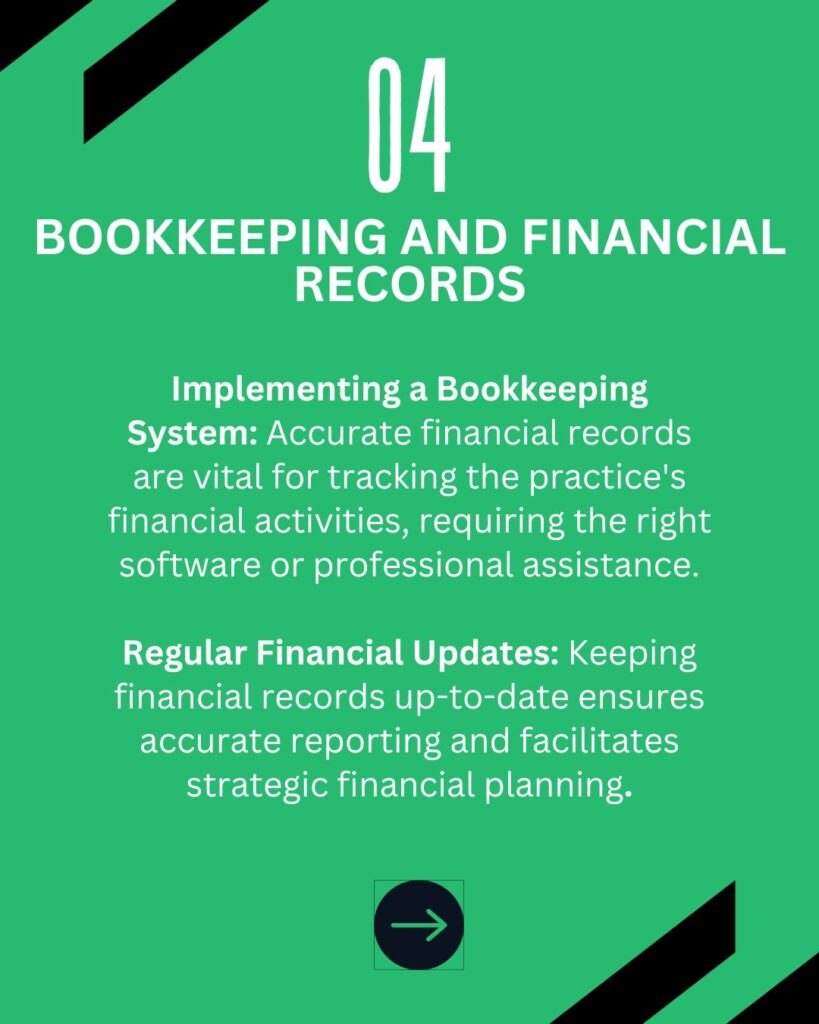
Understanding and analysing key financial ratios
Knowing and understanding important money ratios is really important for dental practices to keep their business healthy and successful. These ratios help you learn important things about how well your practice is doing with money and how healthy it is overall.
One important ratio to think about is the profit ratio. This ratio helps you see how well your practice is turning its work into profit. You can find it by dividing the profit you make by all the money you get. A high profit ratio means your practice is really good at making profit from the money it gets. But if the ratio is low, it might mean you need to find ways to manage costs better or make more money.
Another important ratio is the liquidity ratio. This ratio helps you know if your practice can easily pay its bills and debts. For example, the current ratio compares the money you have right now to the bills you have to pay soon. If the ratio is more than 1, it means you have enough money to pay your bills. If it’s less, it might mean you could have trouble with money soon.
Also, there’s the debt ratio. This ratio helps you understand how much of your practice’s money is borrowed. It compares how much debt you have to how much stuff you own. If the ratio is high, it means you’re using a lot of borrowed money, which could be risky.
Another ratio to look at is the accounts receivable turnover ratio. This ratio helps you know how quickly your practice is getting paid by patients and insurance. A higher ratio means you’re good at getting paid fast. A lower ratio might mean you have problems with how you collect money.
By understanding and keeping an eye on these important metrics, dental practices can make smart choices to make their money situation better. Regularly looking at these ratios helps practice owners find ways to do better, solve money problems, and make sure their business keeps doing well over time.
Action Points
Understanding key financial ratios is crucial for dental practices. The profit ratio shows how well the practice turns revenue into profit. Liquidity ratios measure the ability to pay short-term bills, with ratios over 1 being good. The debt ratio assesses debt reliance. Accounts receivable turnover indicates payment collection speed. Monitoring these ratios helps make informed financial decisions for long-term success.
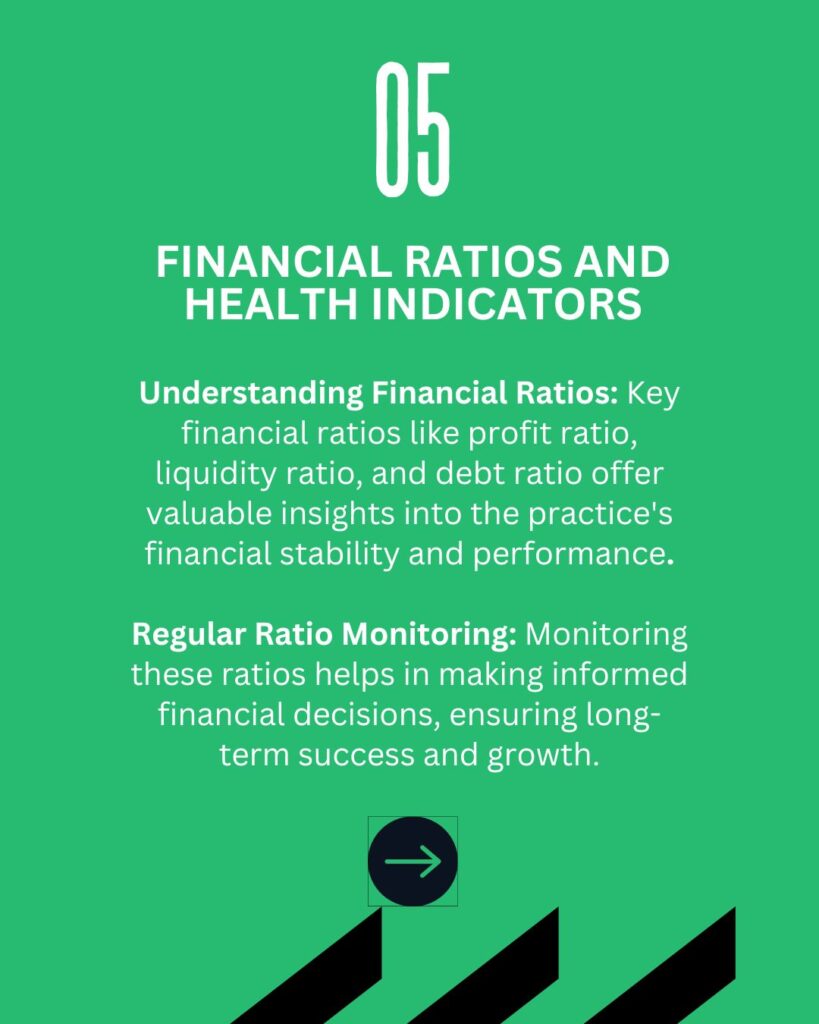
Best practices for inventory management in dental practices
Keeping track of and managing the things you use in your dental practice is really important. This includes supplies and equipment. When you manage these things well, it helps your practice be successful. It makes sure you have what you need when you need it, and it also helps you control costs and reduce waste. Here are some good ways to manage your stuff in your dental practice:
Conduct regular audits: Look at your supplies and equipment often to see what you have and if anything is missing or old. This helps you know what you need to order, when you need to order it and what affect that will have on your cash flow.
Categorize and organize: Arrange and put your things in order so it’s easy to find and restock them. Use clear labels and storage solutions to keep everything organized and in good shape.
Set par levels: Decide how much of each thing you should always have based on how often you use them. This helps you avoid running out or even facing a shortage of any items and makes sure you always have enough for your patients.
Establish a reorder process: Make a simple process to order more supplies before you run out. Keep track of what you have and get automatic alerts when things are running low. This helps you avoid last-minute rushes to get more supplies.
Monitor expiration dates: Some dental supplies can expire, and using expired things can be bad for patients and wasteful. Check expiration dates regularly and use things before they go bad.
Utilize technology: Consider using special software or tools that help you manage your supplies. These tools can help you track what you have, make reports, and show you how much you need. They make it easier to manage your supplies.
When you follow these good practices for managing your supplies, it helps your dental practice run smoothly, take better care of patients, and use money wisely. With well-organized and well-managed supplies, you can focus on giving great dental services and make sure you always have what you need for your practice.
Action Point
Efficient inventory management in dental practices involves regular audits, organization, setting par levels, establishing reorder processes, monitoring expiration dates, and utilizing technology. These practices ensure a well-stocked and organized supply system, promoting smooth operations and quality patient care.
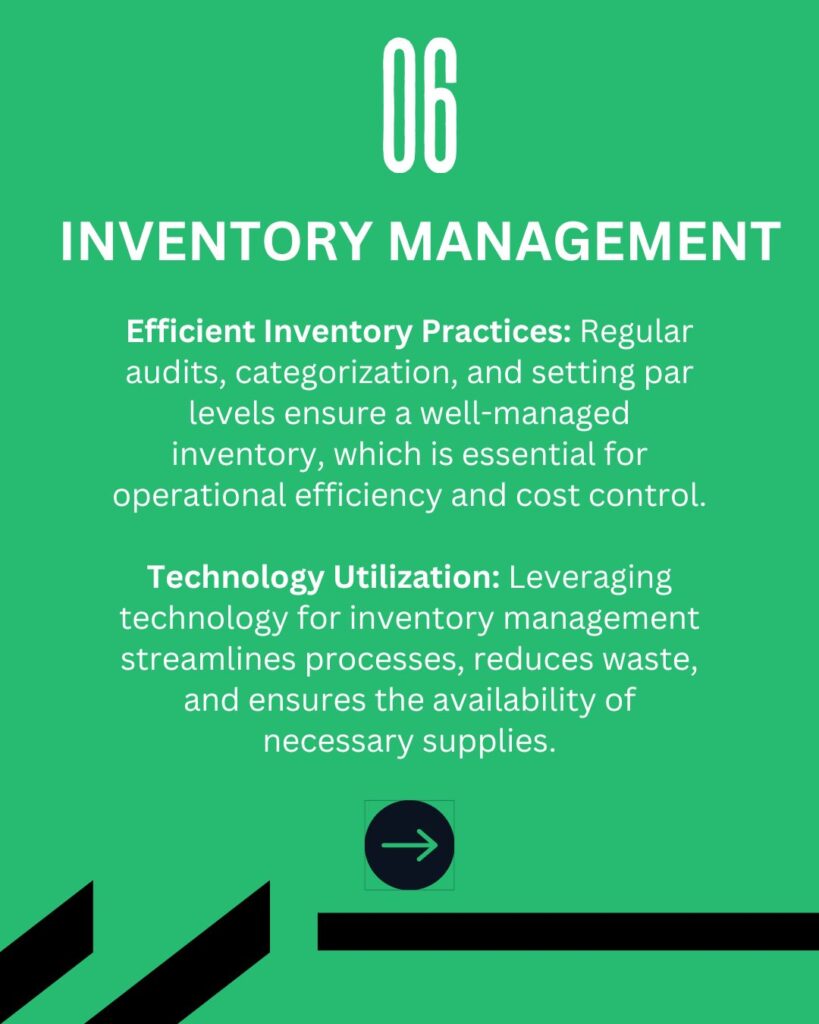
Optimizing insurance billing and claims processing
A big part of making a dental practice successful is making sure insurance billing and claims are done right. Handling the money side of your practice well can lead to more money coming in, less paperwork, and happier patients.
First, it’s important to have a simple and organized system for billing insurance. This means checking if patients are covered by insurance before appointments, coding procedures correctly, and sending claims quickly. This helps you avoid problems with claims and makes sure you get paid properly. Using electronic submission for claims can make this even easier, reducing mistakes and saving time.
Also, it’s crucial to keep learning about the rules and changes in insurance. Regularly updating your knowledge about billing codes and ways to do things right can help you get more money from insurance and avoid problems with following the rules. Using good dental practice software can really help make insurance billing and claims easier. These software tools often have features like sending claims automatically, checking if patients are covered in real-time, and tracking claims. This makes sure you get paid correctly and on time. Also, it’s important to stay in touch with insurance companies. Building good relationships with them can help solve any problems or delays with claims quickly, which is good for your practice and your patients.
Finally, looking at your insurance billing and claims data regularly can help you see how your practice is doing with money. Finding patterns in claim problems, payments that are too low, or claims that were missed can help you fix issues and make sure you’re making enough money. By making insurance billing and claims better, dental practices can have more money, less paperwork, and give patients a smoother experience overall.
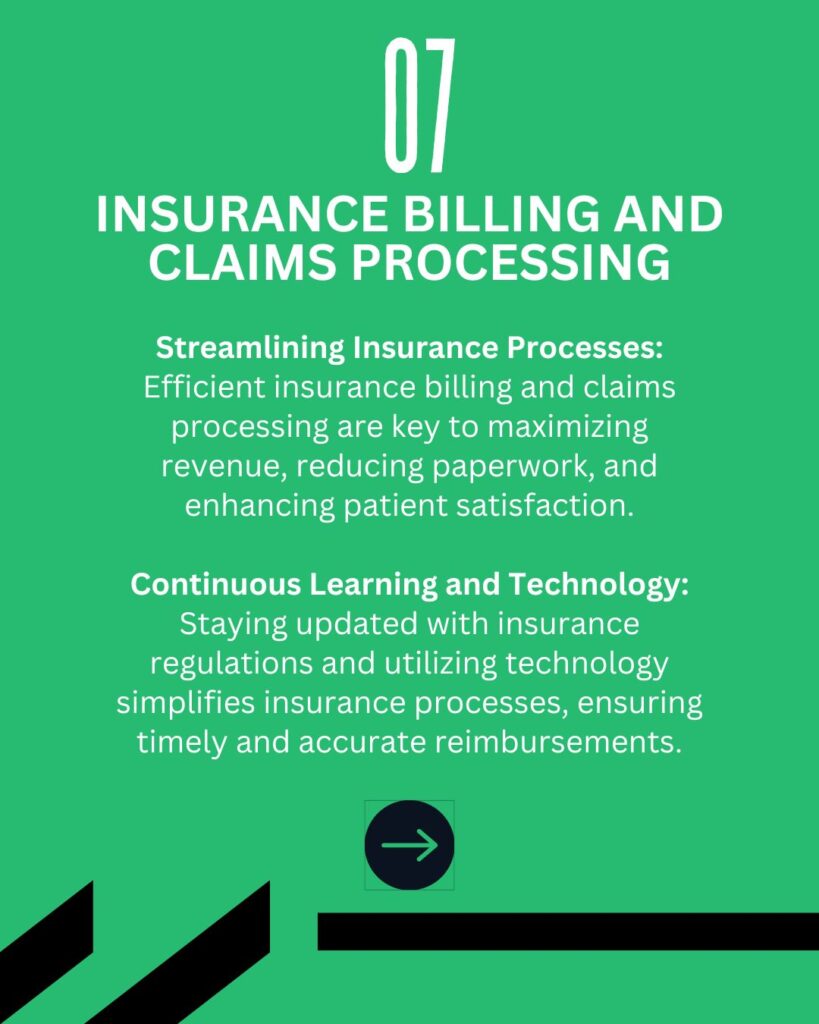
Utilizing technology for streamlined financial management
In today’s digital world, using technology is essential to make money management easier for dental practices. The days of doing everything by hand and using paper records are gone. With the right tools and computer programs, dental practices can make their money tasks much easier, save time and resources, and also be more accurate and efficient.
One of the big parts of money management is keeping track of the money you get and spend. By using accounting software like Xero, dentists can easily record transactions, make money reports, and see how much money is coming in and going out in real-time. This doesn’t just give a good picture of how the practice is doing with money, but it also lets you make quick decisions based on correct and up-to-date information.
Another important technology to think about is digital payment systems. Giving patients the option to pay digitally not only makes things easier for them, but it also makes collecting payments smoother. When you connect online payment systems with the practice’s computer program, you can easily handle payments, keep track of what patients owe, and even remind them to pay. This makes things easier and makes sure payments are made on time. Technology can also help with billing insurance and dealing with claims. By using electronic ways to send claims and keeping track of them, dental practices can reduce paperwork, avoid mistakes, and speed up the process of dealing with claims.
Automatic tools that check if patients are covered by insurance can also help with accurate billing and fewer claim problems. This doesn’t just make the practice’s money situation better, but it also makes patients happier by reducing problems and delays with billing. Additionally, using cloud-based storage and systems to manage documents is a good idea. This helps store and organize money records, invoices, and receipts in a safe and easy way. It gets rid of the need for physical storage and lowers the risk of losing or damaging important documents. With cloud technology, authorized staff members can access financial information from anywhere, making teamwork easier and making sure everyone is on the same page.
To sum it up, using technology is key for dental practices that want to make money management easier. By using computer programs, digital payment systems, electronic claim submission, and cloud-based storage, dental practices can make their money tasks simpler, be more accurate, work more efficiently, and ultimately have more financial success.
Regular financial reviews and seeking professional advice
Checking your practice’s money regularly and getting expert advice are really important steps to understand and manage the money side of your dental practice. As a dentist, your main focus is on giving good care to your patients. But knowing how well your practice is doing financially is just as important. Doing regular money check-ups helps you keep a close eye on how much money is coming in and going out. It helps you find any possible problems and make smart choices to make your practice do better financially.
When you look at financial reports, like income statements, balance sheets, and cash flow statements, you learn important things about how much money your practice is making, how much it’s spending, and how well it’s doing overall. While doing your own money check-ups is important, getting advice from a professional like an accountant or financial advisor who knows about dental practices is really helpful. They can look at your money information, find areas where you can do better, and help you make a good plan to make more profit.
Also, a financial advisor can give you useful ideas about taxes, making budgets, and planning for the future. This helps you make smart choices to pay less in taxes, use money better, and be financially secure in the long run. Remember, staying on top of your practice’s money not only makes it financially healthy but also helps you give the best care to your patients. So, make sure you do regular money check-ups and get professional advice to understand and improve your practice’s money situation and find success in your dental practice.
Handling the money side of a dental practice might seem tough, but with the right plans and steps, you can become great at managing the numbers that make people smile. We talked about things like keeping track of expenses and planning for equipment upgrades, which are important steps to take control of your practice’s money. By using these tips, you’ll make sure your practice is financially stable and ready to grow and succeed. Remember, having a well-organized money system is the key to a healthy smile, both for you and your patients.
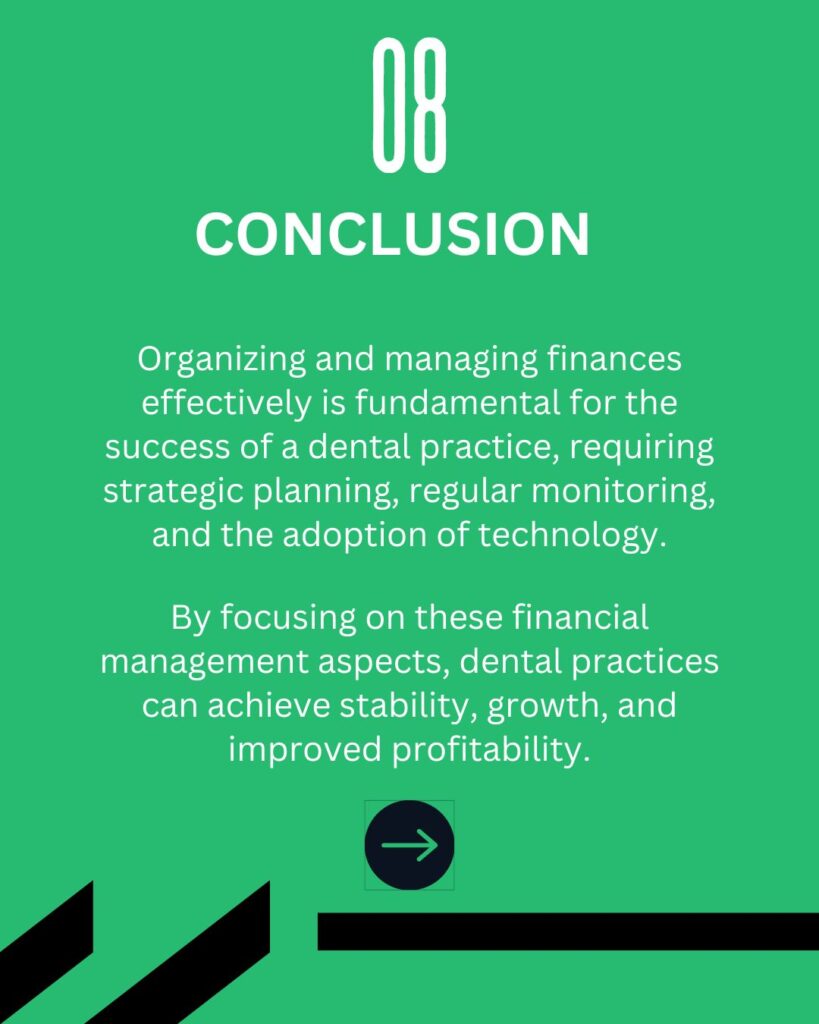
Learn more: Related Articles
About the Author

Neha Jain
Neha Jain is a skilled content writer with a rich background in business and financial knowledge. With a bachelor’s degree in English Literature and Psychology, Neha has honed her writing skills, furthering her expertise with the Content Writing Master Course (CWMC) at IIM SKILLS and a Content Marketing Certification from HubSpot Academy.
Working alongside our business development experts, Neha specialises in helping accountants, dentists and other healthcare professionals start, scale and sell their businesses.
Reviewed By:
Arun Mehra
Samera CEO
Arun, CEO of Samera, is an experienced accountant and dental practice owner. He specialises in accountancy, financial directorship, squat practices and practice management.
Dental Accounts & Tax Specialists
As dental practice owners ourselves, we know what makes a clinic tick. We have been working with dentists for over 20 years to help manage their accounts and tax.
Whether you’re a dental associate, run your own practice or own a dental group and are looking to save time, money and effort on your accounts and tax then we want to hear from you. Our digital platform takes the hassle and the paperwork out of accounts.
To find out more about how you can save time, money and effort on your accounts and tax when you automate your finances with Samera, book a free consultation with one of our accounting team today.
Contact Information
Fill in the form and our team will get back to you as soon as possible.
or
or
Dental Accounts & Tax: Further Information
Make sure you never miss any of our articles, webinars, videos or events by following us on Facebook, LinkedIn, YouTube and Instagram.




